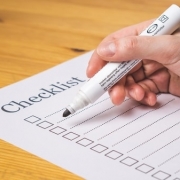Protecting Yourself from Criminal Charges
Many individuals are uncertain how to interact with the police under the threat of criminal charges. Absent the active assistance of an attorney that is well versed in the facts of the matter, there is no sure fire way to handle the situation to avoid criminal charges or to minimize the chances of conviction. That being said, there are several general observations that can assist you in dealing with the police until you have had the time to obtain legal advice.
What the Police Will Try To Do
The police have a duty to investigate and will do what they need to do to obtain as many facts and potential evidence as they can. What may appear to be a willingness to be friendly or cooperative with no intention of pursuing criminal charges is frequently a ploy to maximize their access to information and evidence. You have a duty to obey lawful commands such as “Get out of the car” but your constitutional rights allow you to refuse to provide any information any more substantive than your name and address. Assume that everything you say and do is making it to a police officer’s report.
What You Should Do If You Are Detained by the Police
If they have sufficient information to arrest you, which is called probable cause, your lack of cooperation may fast track the arrest process. You should:
- Say very little, if anything, but do not make false statements.
- Ask what you have done wrong, but DO NOT be confrontational.
- Determine if the officer has a camera/video recording the event.
- Advise the police officer that you would like to speak to an attorney before responding to any further questions.
- Do not discuss the particulars of your involvement in the incident under investigation with family, friends or others involved in the matter.
- Speak to an attorney at your earliest opportunity.
If you are arrested, the timing and terms of your release vary dramatically depending on the jurisdiction involved and the charges at issue, with most first time offenders of non-felony charges released on a personal bond (without paying a fee).
What You Should Do If You Are Taken Into Custody
While in custody, a few general rules apply:
- Your behavior is being assessed and studied, so being polite serves a purposes.
- Make sure you provide a solid address as it will have a bearing upon the conditions of any release.
- Do not discuss the facts of the case with ANYONE until you have spoken to an attorney.
- Maryland provides for an attorney in bail review situations if you aren’t released on personal bond with a hearing before a judge happening within a business day of the arrest.
The procedure subsequent to your release, if you have been successful in being released, varies depending on the charges and whether it is a Circuit Court or District Court matter. A successful handling of the matter requires the prompt attention of competent counsel, so do not delay getting legal advice. Access to information is needed for a successful defense. An attorney can help with the assessment of the prosecutor’s ability to prove a case or not, as well as pursuing a strategy to minimize the negative repercussions of a finding of guilt. Do not delay getting assistance from an attorney.











